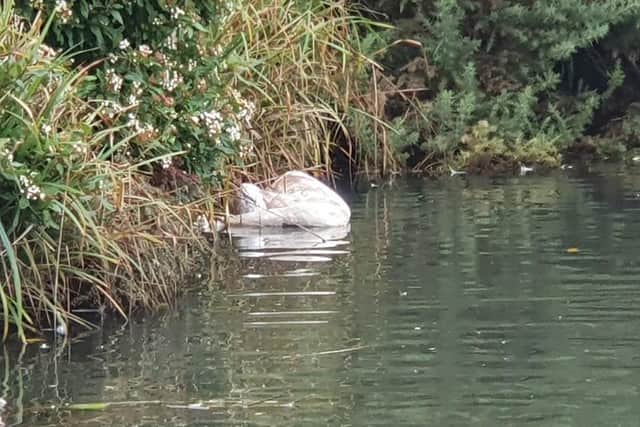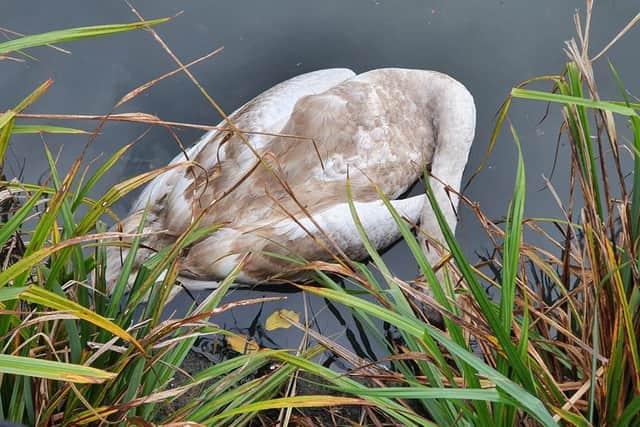Three swans die in suspected bird flu case in Lytham
and live on Freeview channel 276
Three cygnets from the same swan family have died at Cypress Point in the past seven days.
The first swan was found dead on the Japanese Pond on Sunday. Then on Monday morning, the body of another swan was found on the main pond nearby.
Advertisement
Hide AdAdvertisement
Hide AdA sick cygnet had also become tangled in some netting on the lakebed, and was taken to the Veterinary Health Centre on Greenways, where it was euthanised.


Mel Greenhalgh, of South Shore-based Brambles Wildlife Rescue, who attended the trapped bird, said: "I think we are dealing with Bird Flu.
"When I arrived there was already a family trying to pull the cygnet out of the lake. It was still in the water and it clearly had its foot trapped, however, we were unable to touch it because we couldn't risk carrying the flu back to our own rescue birds, so it was a bit of a nightmare.
"Luckily the family was able to free the bird and take it to Greenways, where it had to be euthanised.
Advertisement
Hide AdAdvertisement
Hide Ad"That's three swans in 24 hours - and there's one still very poorly on the lake."


A bird flu prevention zone was declared across Great Britain this week to stop the spread of the disease following outbreaks in Scotland and Wales.
On Wednesday, a flock of poultry was culled near Dundee in Scotland after a bird flu outbreak. Cases were detected in wild birds and poultry in Wrexham, Wales, and other places.
All bird keepers must now follow strict biosecurity measures to help protect their flocks, restricting access for non-essential visitors, changing clothing and footwear before entering enclosures, and making sure bird-carrying vehicles are cleaned and disinfected regularly.
Advertisement
Hide AdAdvertisement
Hide AdIn November last year, a similar red alert was issued following the deaths of numerous birds all over the country - with nine swans from Blackpool's Stanley Park falling victim to the disease.
Mel said: "Bird Flu seems to be an annual thing. But it's a particularly nasty disease. Waterfowl are particularly badly affected, moreso than garden birds and pigeons. Moor hens, swans, ducks and geese are the main victims.
"All of these swans were in their first year of life, and sadly all from the same family. The dad has raised the cygnets alone, because the mum had a broken leg and was euthanised. It's terribly sad. The death of any swan is a shame, but these babies haven't even had a chance at life.
Advertisement
Hide AdAdvertisement
Hide Ad"Bird Flu is a horrible disease. They are disorientated, they spin around in circles, clearly distressed, shaking their heads - and there's nothing you can do.
"Sadly, I think there will be at least one more victim before it goes away."
Thanks for reading. If you value what we do and are able to support us, a digital subscription is just £1 for your first month. Try us today by clicking here.
Comment Guidelines
National World encourages reader discussion on our stories. User feedback, insights and back-and-forth exchanges add a rich layer of context to reporting. Please review our Community Guidelines before commenting.